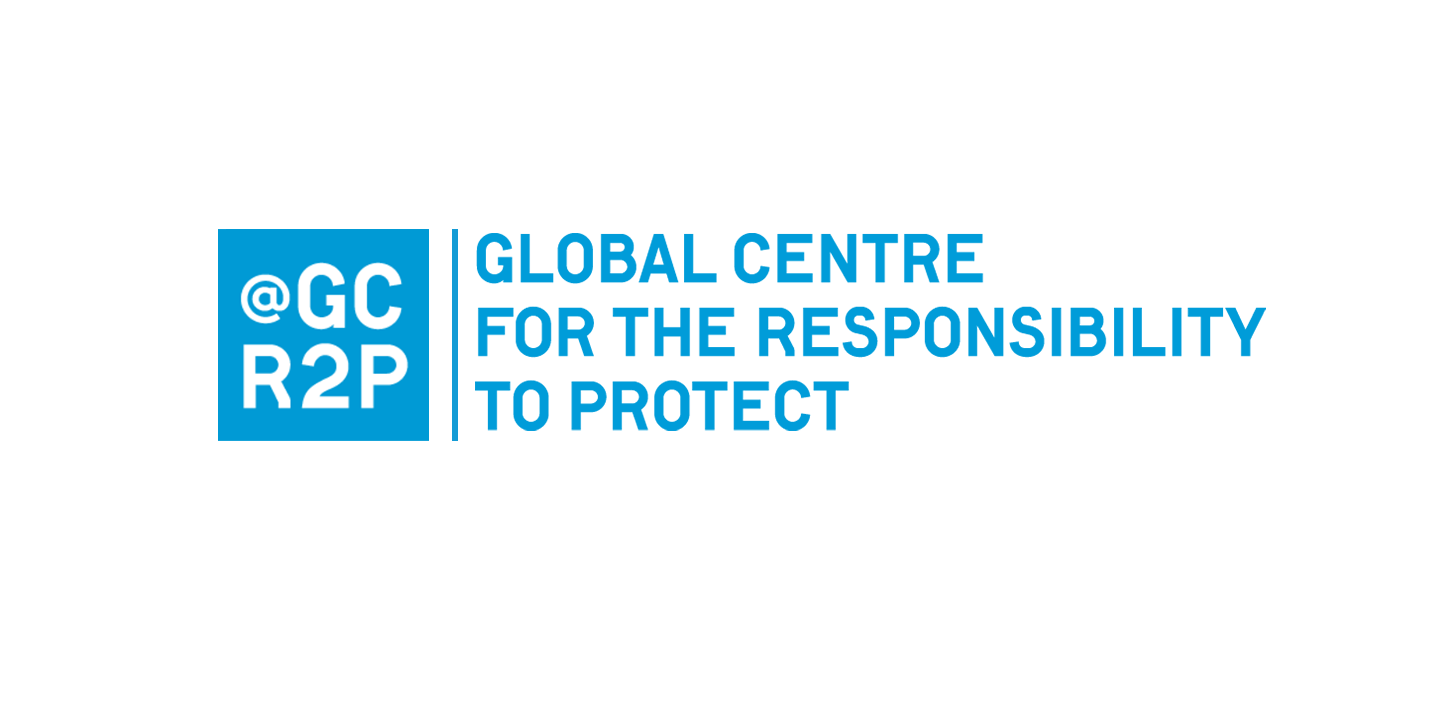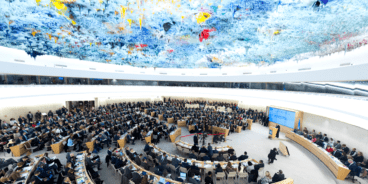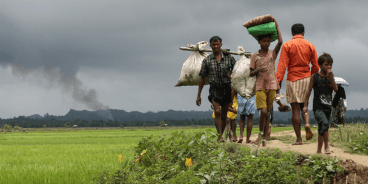

Global Centre for the Responsibility to Protect Submission for the 45th session of the Universal Periodic Review Working Group in January 2024 concerning the People’s Republic of China
This submission was prepared by the Global Centre for the Responsibility to Protect (GCR2P). The Global Centre seeks to prevent and halt mass atrocity crimes – genocide, crimes against humanity, war crimes and ethnic cleansing – by working with governments, civil society and international and regional organizations to effectively and consistently implement the principle of the Responsibility to Protect (R2P). GCR2P, an independent organization with offices in New York and Geneva, is a trusted guide to governments from the global North and South, as well as senior UN officials, and serves as a close collaborator with leading civil society advocates on the prevention of mass atrocity crimes.
SUMMARY
The People’s Republic of China (China) has perpetrated a repressive campaign against Uyghurs and other majority-Muslim ethnic groups for several decades. Since 2017 – one year before it’s last UPR review – the Chinese government has severely escalated its persecution of members of the ethnic Uyghur community, as well as Kazakhs, Kyrgyz, and other majority-Muslim ethnic groups in the northwestern Xinjiang Uyghur Autonomous Region (XUAR) under the guise of combating religious extremism and terrorism. Although China has perpetrated a repressive campaign against Uyghurs and other majority-Muslim ethnic groups in the region for several decades, abuses have significantly escalated since 2017. Through its actions the Chinese government purportedly aims to forcibly assimilate Uyghurs and other majority-Muslim ethnic groups into the dominant Han Chinese group.
The Chinese government has perpetrated probable crimes against humanity, including torture, forcible transfers, arbitrary imprisonment and large-scale detentions, forced labor, enforced disappearances and rape and other forms of sexual violence against Uyghur and other majority-Muslim ethnic groups. The Chinese government has also likely perpetrated acts of genocide in XUAR, including conducting a coercive campaign to forcibly reduce birth rates among Uyghurs and other majority-Muslim populations. The Chinese government also appears to be intentionally perpetrating at least three other acts prohibited under the Genocide Convention, including causing serious bodily and mental harm; inflicting living conditions that are intended to bring about the group’s destruction; and forcibly transferring Uyghur children to state-run orphanages and boarding schools. The Chinese government’s systematic destruction of cultural heritage aims to erase the history and identity of Uyghurs and other groups, providing further evidence of possible genocide. The imposition of strict control over populations in XUAR, including through mass surveillance, facilitates ongoing persecution.
FOLLOW-UP TO THE PREVIOUS REVIEW
In its 3rd UPR review in November 2018, China received 346 recommendations, out of which 17 addressed the situation of human rights in XUAR. China subsequently accepted one recommendation with reference to XUAR, which called on Chinese authorities to “guarantee freedom of religion or belief, including in Tibet and Xinjiang.” Since its previous review, systematic state-led violations and abuses in XUAR have continued, expanded and intensified, as documented by the Office of the UN High Commissioner for Human Rights (OHCHR), UN Treaty Bodies, Special Procedures, international and national civil society organizations and academic institutions.
The following section provides an analysis on recommendations issued to China during its previous review in November 2018 with regards to the situation in XUAR, as well as an analysis of developments since the previous review in relation to these recommendations.
Recommendation to guarantee freedom of religion or belief, including in Tibet and Xinjiang
Banning of religious practice
While the Chinese government accepted the recommendation to “guarantee freedom of religion or belief, including in Tibet and in Xinjiang” during its review in November 2018, Chinese authorities have since taken further steps to systematically persecute Uyghurs, Kazakhs, Kyrgyz and other groups in XUAR. In XUAR, the Chinese government has effectively outlawed the practice of Islam to the extent where even possessing a Quran can lead to detention. The government passed the “Regulation on De-extremification” in 2017, banning a range of apparently “extreme” behaviors, like beards and Islamic-sounding names, and has cracked down on halal food and Uyghur music. The Chinese government also imprisons intellectual, cultural and religious Uyghur leaders. According to the Uyghur Human Rights Project, 1,046 imams and other religious figures from XUAR have been detained in camps or imprisoned since 2014.
Destruction of cultural and religious heritage
Cultural destruction is central to efforts to forcibly assimilate Uyghurs. Chinese authorities have engaged in the systematic destruction of Uyghur cultural heritage, demolishing or damaging mosques, shrines, cemeteries and pilgrimage sites, as well as several tangible and intangible Uyghur, Kazakh and Kyrgyz cultural items listed by the UN Educational, Scientific and Cultural Organization (UNESCO). Since 2017 the Chinese government has destroyed or damaged about 16,000 mosques in Xinjiang, or 65 percent of the total. Moreover, 28 percent of other important Islamic sacred sites — such as shrines, cemeteries and pilgrimage routes — are damaged, and an additional 30 percent completely destroyed. The heritage items of muqam, karez, manas, meshrep and the Xinjiang Tianshan Mountain range are also under threat.
Other measures aimed at destruction of Uyghur culture and religion
Coerced and forced intermarriage is another way the Chinese government is seeking to dilute and destroy Uyghur culture. According to research by the Uyghur Human Rights Project, the Chinese government has been promoting, incentivizing, coercing and forcing Uyghur women to marry Han Chinese men since 2014 as part of a broader campaign to forcibly assimilate Uyghurs into Han society and reduce the Uyghur population. Uyghur women are rarely in a position where they can refuse a Han suitor, often due to a fear of detention. Previously a rarity, Uyghur-Han marriages have been steadily rising since 2018. The Chinese government often promotes intermarriage as an important way to support “ethnic unity.”
Recommendation to abolish all forms of arbitrary detention and close all “re-education centers” in Uyghur areas
Expansion of re-education centers
During its previous review in 2018, China received multiple recommendations addressing arbitrary detention in XUAR. Over 1 million people, mainly Uyghurs, have been arbitrarily detained in “re-education” or “de-extremification” facilities since 2017. More than 380 suspected detention facilities in XUAR have been built or expanded since 2017, according to the Australian Strategic Policy Institute. There are reports of widespread rape, sexual abuse and torture of ethnic minorities in these facilities. At least 880,000 children in XUAR — whose parents are allegedly detained or in exile — have been placed in state-run orphanages or boarding schools. Detainees experience conditions characterized by extreme physical and psychological torture, which, in addition to likely amounting to genocide and crimes against humanity, may also constitute a violation of Article 12 of the International Covenant on Economic, Social and Cultural Rights (ICESCR).
Former UN High Commissioner for Human Rights, Michelle Bachelet, released a report on the human rights crisis in XUAR on 31 August 2022. The report determined that the extent of arbitrary and discriminatory detention of Uyghurs and other majority-Muslim ethnic groups may constitute crimes against humanity, and that conditions remain in place for serious human rights violations to continue. The report also questioned the Chinese government’s claims that its policies are for counterterrorism purposes.
Arbitrary detention and forced labor
Approximately 100,000 Uyghurs are working under conditions that strongly suggest forced labor, with many transferred from government-run detention camps to factories. Reports have identified at least 135 detention facilities in XUAR that have on-site factories where detainees are reportedly forced to work. International research and advocacy groups have documented evidence of Uyghur forced labor linked to cotton, tomatoes, chemicals and other products sold globally. The Helena Kennedy Centre for International Justice has reported that over 100 international brands may be tied to Uyghur forced labor-produced cotton while the Coalition to End Forced Labour in the Uyghur Region has found that 45 percent of the world’s polysilicon comes from XUAR, implicating nearly the entire global solar panel industry.
The UN Special Rapporteur on contemporary forms of slavery determined that forced labor among Uyghurs, Kazakhs and other ethnic minorities has been occurring in sectors such as agriculture and manufacturing in XUAR and Tibet. Moreover, in her August 2022 report, former High Commissioner Bachelet determined that employment schemes for the purported purposes of poverty alleviation and prevention of extremism “may involve elements of coercion and discrimination on religious and ethnic grounds.”
Other coercive measures in the context of arbitrary detention and persecution
In XUAR, the Chinese government has embarked on a coercive campaign to reduce Uyghur births, including through forced sterilizations, forced abortions and mandatory birth control. This campaign led to a nearly 50 percent decrease in birth rates from 2017 to 2020 in XUAR. Beijing’s campaign to reduce Uyghur births likely constitutes genocide and is also in violation of Article 12 of ICESCR.
Recommendation to discontinue all government policies and activities, such as ethnic profiling, that are not in compliance with China’s international human rights obligations
Mass surveillance and ethnic profiling in XUAR
Mass surveillance by Chinese authorities against Uyghurs and other majority-Muslim ethnic groups has become a defining feature of government repression in XUAR. On 4 May 2023 Human Rights Watch (HRW) released an investigation into phone search programs in XUAR, revealing that police “rely on a master list of 50,000 multimedia files they deem ‘violent and terrorist’ to flag Uyghur and other Turkic Muslim residents for interrogation.” According to the investigation, authorities conducted nearly 11 million searches of 1.2 million mobile phones in Xinjiang’s capital, Urumqi, during a nine-month period between 2017 and 2018 alone. HRW reviewed 1,000 files that matched those on the police master list and found that approximately 57 percent “appear to be common Islamic religious materials,” including readings of the Quran. In some cases, possession of the files may form the basis of detention and imprisonment.
The widespread use of facial recognition cameras and the forced collection of biometric data, as well as police checkpoints and the use of community informants, have turned XUAR into a de facto police state. In a report dated 31 August 2022 OHCHR warned that abusive powers given to police and security forces, as well as domestic legislation on criminal procedure and counterterrorism, facilitate possible crimes against humanity and “provide legal underpinning for what has been alleged to be a sophisticated, large-scale and systematized surveillance system in practice, implemented across the entire region both online and offline.”
Mass surveillance of Uyghur diaspora outside of XUAR
A report published by independent experts at the University of Sheffield in April 2023 warned that China “exports its domestic model of governance and genocidal oppression to target all Uyghurs and their family members” through transnational repression. In Turkey, home to the largest number of Uyghur diaspora outside of Central Asia, researchers documented “growing dangers of deportation, surveillance by Uyghur informants, and restrictions on civil rights, particularly for those granted temporary humanitarian visas.” HRW has warned that China’s surveillance apparatus has also affected Uyghurs living in France and other European countries.
Recommendation to implement the recommendations of the Committee on the Elimination of Racial Discrimination on Xinjiang
The Committee on the Elimination of Racial Discrimination (CERD) monitors the compliance of states that have ratified the 1965 International Convention on the Elimination of All Forms of Racial Discrimination (ICERD), which includes China. During its previous review in November 2022, China received a recommendation to “implement the recommendations of the Committee on the Elimination of Racial Discrimination on Xinjiang.” Yet, due to the lack of improvement in the human rights situation in XUAR, on 24 November 2022 CERD adopted a decision under it’s “early warning and urgent action procedure,” strongly condemning China’s human rights violations in XUAR and calling on the government to immediately investigate all allegations of violations. This watershed ruling also referred the situation to the Special Adviser of the UN Secretary-General on the Responsibility to Protect, marking the first time the Committee has referred a situation to the UN Office on Genocide Prevention and R2P.
In its ruling, CERD noted that it was “alarmed by the allegations of torture or ill-treatment, forced labour, sexual violence, arbitrary detention and related patterns of abuse” in XUAR, echoing concerns issued by other UN officials and mechanisms. The Committee expressed concern about “policies and practices leading to forced displacements, separation of families and the severing of human contacts,” which cause “particular suffering to affected Uyghur and other ethnic Muslim communities.” CERD urged the Chinese government to release all people being arbitrarily detained and implement the recommendations included in the former UN High Commissioner for Human Rights’ report on the situation in XUAR. CERD also reminded other UN member states of their responsibility to respond to serious human rights violations.
RECOMMENDATIONS FOR ACTION BY THE STATE UNDER REVIEW
The widespread and systematic persecution of Uyghurs and other majority-Muslim ethnic groups on religious, cultural, ethnic and gender grounds; enforced disappearances; forcible transfers; the large-scale detention program; torture of detainees; forced sterilization and sexual violence; and the denial of information regarding the fate of persons in state custody likely constitute crimes against humanity.
The Chinese government also appears to be intentionally perpetrating at least four acts prohibited under Article II of the Genocide Convention: “imposing measures intended to prevent births” within a targeted group; “causing serious bodily or mental harm to members of the group”; “deliberately inflicting on the group conditions of life calculated to bring about its physical destruction in whole or in part”; and “forcibly transferring children of the group to another group.”
The Chinese government’s systematic destruction of cultural heritage aims to erase the history and identity of Uyghurs and other groups, providing further evidence of genocide. The imposition of strict control over populations in XUAR, including with mass surveillance, facilitates ongoing persecution.
The Global Centre for the Responsibility to Protect calls upon the Chinese government to:
-
-
- Take swift measures to release all individuals arbitrarily deprived of their liberty in XUAR, including those currently detained in prisons or other detention facilities;
- Take concrete and immediate steps to clarify the whereabouts of individuals whose families have been seeking information about their loved ones in XUAR, including by providing details of their exact locations and establishing safe channels of communication and travel enabling families to reunite;
- Immediately cease all acts of reprisals or intimidation against Uyghur and other ethnic Muslim communities, the diaspora and those who speak out in their defense, both domestically and abroad;
- Urgently repeal all discriminatory laws, policies and practices against Uyghur and other predominantly Muslim minorities in XUAR;
- Ensure that victims of human rights violations, including Uyghurs and other ethnic Muslim communities, are provided with adequate and effective remedies and reparation;
- Immediately repeal the “Regulation on De-extremification” and cease all measures aimed at restricting the right to religious freedom of Uyghur and other majority-Muslim ethnic groups;
- Undertake a full review of its legal framework governing national security, counterterrorism and minority rights in XUAR to ensure its full compliance with its obligations as a party to ICERD;
- Cease the deliberate destruction of Uyghur cultural heritage and clarify the demolishing or damaging thousands of mosques, shrines, cemeteries and pilgrimage sites, as well as several tangible and intangible Uyghur, Kazakh and Kyrgyz cultural items listed by UNESCO;
- Immediately stop the practice of forcibly preventing births and separating Uyghur children from their families;
- Swiftly implement the recommendations issued by OHCHR, including in its report dated 31 August 2022.
-
Related Content


Recommendations for the 49th Session of the Universal Periodic Review
